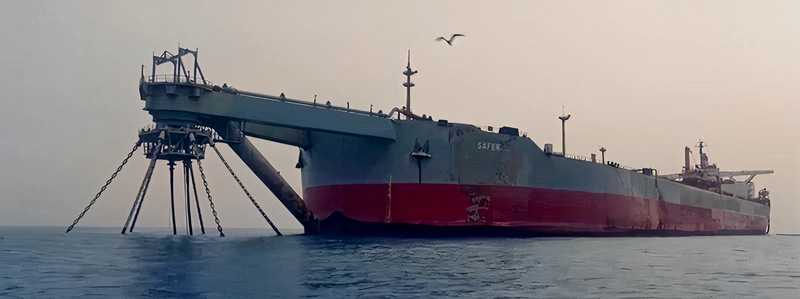UN Set to Start Removing Oil from Decaying Yemen Tanker FSO Safer
An operation to start removing some 1.1 million barrels of oil from a decaying tanker moored off Yemen's coast could start by the end of the week, the United Nations said on Tuesday.
U.N. officials have been warning for years that the Red Sea and Yemen's coastline were at risk as the tanker Safer could spill four times as much oil as the 1989 Exxon Valdez disaster off Alaska.

U.N. spokesman Stephane Dujarric said a vessel to which the oil will be transferred is less than 2 miles (3km) away and "making final preparations to moor next to the Safer, with ship-to-ship transfer of oil expected at the end of the week."
Another vessel is already alongside the Safer to help with the transfer of oil.
The war in Yemen caused suspension of maintenance operations on the Safer in 2015. The U.N. has warned that the ship's structural integrity has significantly deteriorated and it is at risk of exploding.
The U.N. has said the cleanup of a spill could cost $20 billion.
Yet it has struggled to raise the $129 million needed to remove the oil from the Safer, which included paying $55 million to buy the replacement vessel. The U.N. even started a crowdfunding campaign.
The salvage operation cannot be paid for by the sale of the oil because it is not clear who owns it, the U.N. has said.
Yemen has been mired in conflict since the Iran-aligned Houthi group ousted the government from the capital Sanaa in late 2014. A Saudi Arabia-led military coalition intervened in 2015 aiming to restore the government.
Peace initiatives have seen increased momentum since Riyadh and Tehran in March agreed to restore diplomatic ties severed in 2016.
(Reuters - Reporting by Michelle Nichols)
Related News
China Cites Their Disputed Sea Structure As a Fish Breeding Facility
